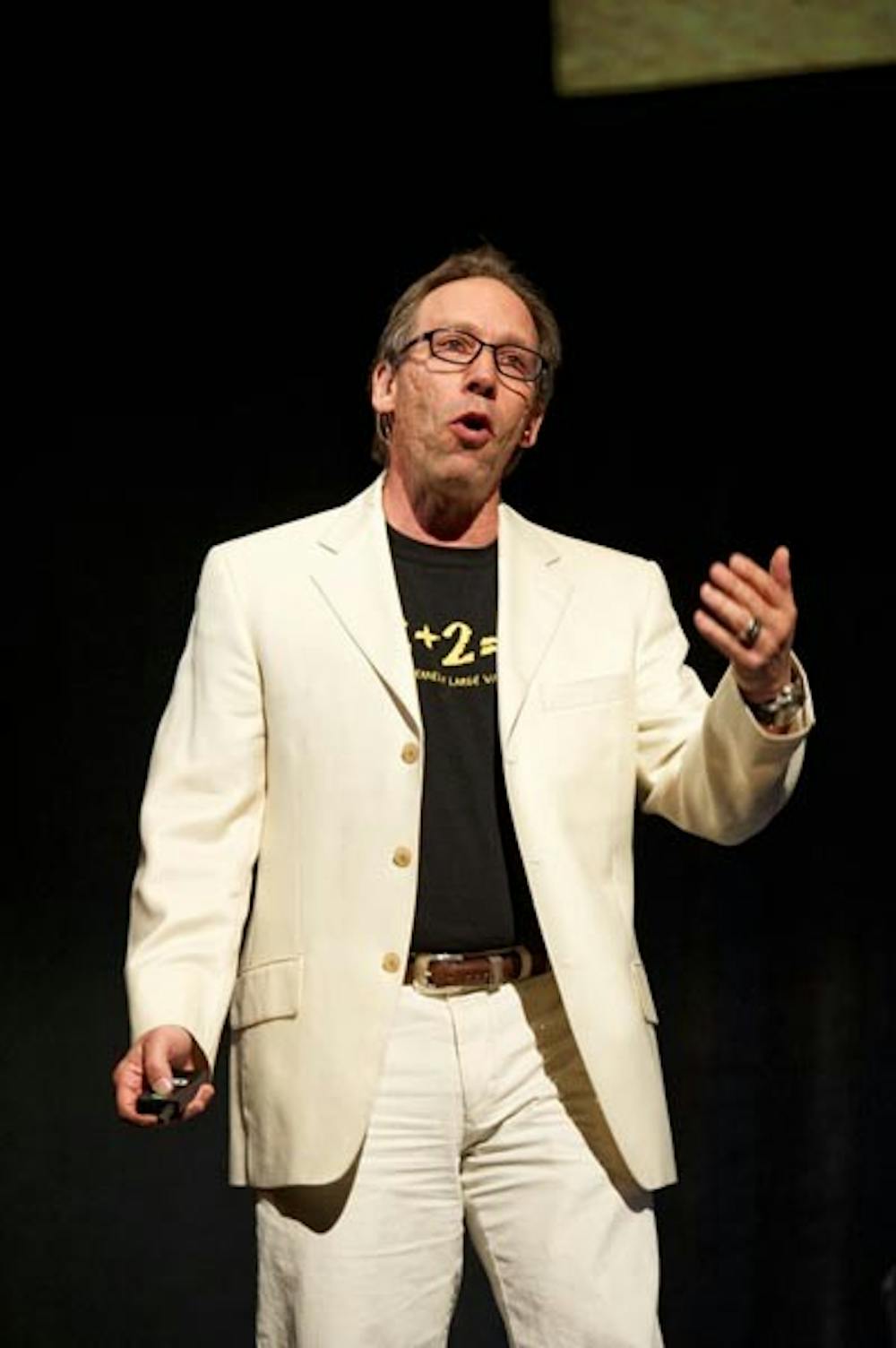Can science prove right from wrong?
This question brought notable philosophers and scientists together for The Great Debate at ASU’s Gammage Auditorium Saturday night as part of the Origins Initiative at ASU. The initiative was started in May 2008 to help better understand the way life developed on the planet.
Saturday’s Great Debate focused on whether science could provide answers to ethical questions.
On one side of the debate were scientists who believe morality is an evolutionary adaptation in humans. They say knowledge of how the brain is involved in moral decisions may help science determine how humans separate positive actions from negative actions.
Others caution this idea, believing that it looks at morality through too narrow of a scope. They say culture, religion and other factors play directly in morality, and it is not something strictly tied to hardware.
Steven Pinker, a psychology professor at Harvard University, represented the duality of this idea.
“Science is indispensible in determining right from wrong,” Pinker said. “But, it’s not enough.”
The emphasis on logic and reason in the sciences makes it a great tool in deciding right from wrong, Pinker said, but it’s too one-dimensional to be the only tool used.
Lawrence Krauss, director of the Origins Initiative and a participant in the debate, said scientific processes are the primary ways humans find their values.
“The process of science is what has to change our values,” Krauss said. “Science is the way we determine the consequences of our actions.”
Sam Harris, CEO of Project Reason, a nonprofit organization dedicated to spreading secular values, agreed with Krauss, saying science helps us find the moral ways to live by analyzing values. He said science can be used to navigate the moral landscape and promote better well being.
“Science is in the value business,” Harris said.
People who argue for a moral relativism, a philosophy in which there are no universal good and bad behaviors, would be looked down on if they were in the medical field, he said, and should be treated the same way when discussing morality.
“You don’t hear people say, ‘Well, who are you to say that health has something to do with living a life free of pain and debilitating illness,’” Harris said. “But my description of a possible science of well-being seemed open to that challenge.”
Harris expressed frustration at the notion that there cannot be absolute truths in morality, adding that he disagrees with philosophies that make determining right answers and wrong answers an edgy practice.
“Some people are wrong about how we should live in this world,” Harris said. “There are going to be right answers to the question.”
The idea of using science as a moral compass concerned Patricia Churchland, emeritus professor of philosophy at the University of California, San Diego. She said this could lead to academics behaving in silly or arrogant ways.
She said academics who live sheltered, privileged lives can very easily use science to develop answers to problems that do not work for everyone.
“They tend to draft hypotheses about what we ‘ought to do,’” Churchland said. “When you’re a person who lives in the real world, they do not make very much sense.”
Though Harris and Krauss seemed convinced that science is key to understanding morality, others at the forum came up with a very different idea of science’s role in the issue.
Peter Singer, a bioethics professor at Princeton University known for his work in the animal liberation movement, said science can give an idea of where morality comes from, but he does not feel it can help us generate answers to moral questions.
“I don’t think that science can tell us right from wrong,” Singer said. “I don’t believe that it can provide us with the premises that we can work from.”
Simon Blackburn, a philosophy professor at the University of Cambridge in England, said moral questions are far too difficult to answer with any individual method, including science.
“It is a complete delusion to suppose that science can give us all the answers,” Blackburn said.
Blackburn added that determining how humans decide right from wrong will remain a hard question to answer definitively.
“I’m afraid that this remains a very difficult subject,” Blackburn said.
Reach the reporter at michael.reppenhagen@asu.edu





